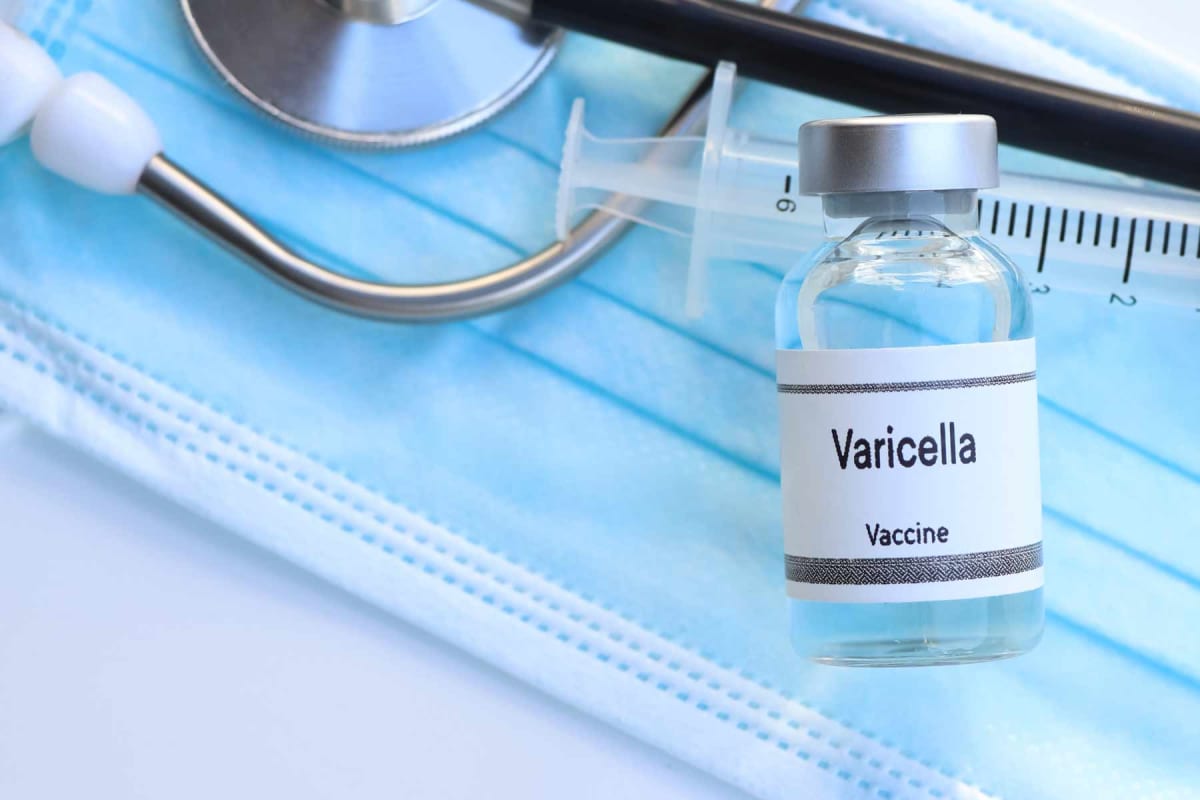
How much does the varicella vaccine cost?
How much does the varicella vaccine cost?
$150 – $275 average cost per dose without insurance
$300 – $550 average cost for full 2-dose series
Varicella vaccine cost
The varicella vaccine costs $150 to $275 per dose without insurance or $300 to $550 total for the full two-dose regimen. Varicella (chickenpox) vaccine prices depend on your location, insurance coverage, and where you get the vaccine. Medicare Part D and most health insurance plans cover the full cost of the varicella vaccine.

| Factor | Average cost |
|---|---|
| Single dose | $150 – $275 |
| Full 2-dose series | $300 – $550 |
Many local health departments offer discounted chickenpox vaccines for individuals without insurance.
The federal Vaccines for Children (VFC) program provides free varicella vaccines for eligible children ages 18 and younger.
What is varicella (chickenpox)?
Varicella, commonly known as chickenpox, is a highly contagious disease caused by the varicella-zoster virus (VZV). The disease is characterized by an itchy, blister-like rash that typically appears first on the chest, back, and face, and then spreads to the rest of the body.
Other symptoms include:
Fever
Fatigue
Headache
Loss of appetite
While chickenpox is usually mild in children, it can cause more severe symptoms in adults, infants, pregnant women, and people with weakened immune systems. In rare cases, serious complications can occur, including bacterial infections of the skin, pneumonia, inflammation of the brain (encephalitis), and blood stream infections (sepsis).
How is varicella spread?
Chickenpox is extremely contagious and spreads in several ways:
Direct contact with the fluid from chickenpox blisters
Airborne transmission through respiratory droplets when an infected person coughs or sneezes
Contact with contaminated objects or surfaces
A person with chickenpox is contagious for 1 to 2 days before the rash appears until all blisters have formed scabs, which typically takes 5 to 7 days.
Can you get chickenpox twice?
While it's rare, it is possible to get chickenpox more than once. After recovering from chickenpox, most people develop immunity that protects them from getting the disease again. However, the virus remains dormant in nerve tissue and can reactivate later in life as shingles, particularly during times of stress or when the immune system is compromised.
Varicella vaccine FAQs
Is varicella a live vaccine?
Yes, the varicella vaccine is a live attenuated vaccine. This means it contains a weakened form of the live varicella-zoster virus. The virus in the vaccine is strong enough to trigger an immune response but too weak to cause the full disease in people with healthy immune systems.
When did the chickenpox vaccine come out?
The varicella vaccine was first developed in Japan in the early 1970s by Dr. Michiaki Takahashi. After extensive testing, Japan licensed the vaccine in 1988. In the United States, the Food and Drug Administration (FDA) approved the first varicella vaccine, Varivax, in March 1995.
Can you get chickenpox if vaccinated?
Yes, it is possible to develop chickenpox after vaccination, but it's relatively uncommon and typically results in a milder form of the disease with a shorter duration and lower risk of complications.
The chickenpox vaccine is approximately 98% effective at preventing the disease. Even with the small possibility of a breakthrough infection, vaccination is still highly recommended as it significantly reduces the severity of the disease and prevents most serious complications.
Is one dose of chickenpox vaccine enough?
No, current recommendations call for two doses of the varicella vaccine for complete protection. While a single dose is 80% to 85% effective at preventing chickenpox, two doses are 98% effective, providing significantly better immunity against the disease.
Can you get shingles if you had the chickenpox vaccine?
Yes, it's possible to get shingles even if you've had the chickenpox vaccine, but the risk is significantly lower compared to people who had a natural chickenpox infection. Children vaccinated against chickenpox have a 4 to 5 times lower risk of developing shingles compared to those who had a natural chickenpox infection.
Additionally, when vaccinated individuals do develop shingles, they typically experience milder cases with fewer complications.
For older adults, the shingles vaccine can reduce the risk of developing shingles and its complications. The shingles vaccine costs $360 to $500 total for the full two-dose vaccine series, but Medicare Part D and 96% of health insurance plans cover the full cost.
When can you get the chickenpox vaccine?
The CDC recommends the following vaccination schedule for the varicella vaccine:
Children under 13 years old should get 2 doses:
First dose at 12 to 15 months old
Second dose at 4 to 6 years old
People 13 years and older who have never received the varicella vaccine and have never had chickenpox should get 2 doses administered 4 to 8 weeks apart.
How long does the varicella vaccine last?
The varicella vaccine provides long-lasting protection against chickenpox. Studies have shown that the immunity persists for at least 20 years after vaccination, and there is evidence suggesting it provides lifelong protection for most people, especially after receiving the recommended two doses.

Where to get the varicella (chickenpox) vaccine
The varicella vaccine is available through various healthcare providers and locations:
Pediatricians and primary care physicians
Public health departments
Community health centers
Some pharmacies
Travel clinics
Urgent care facilities